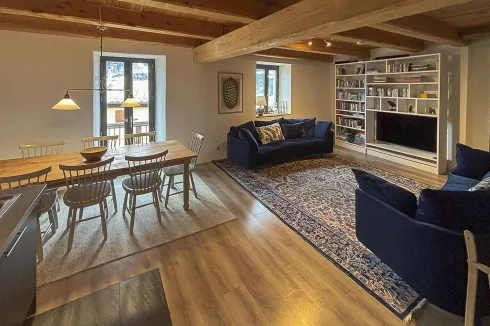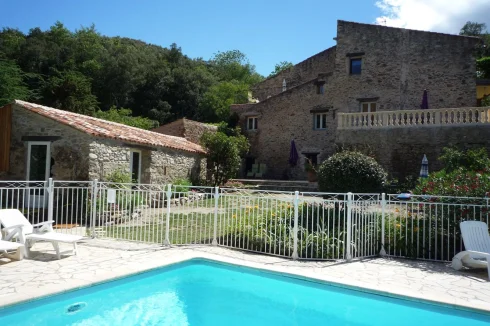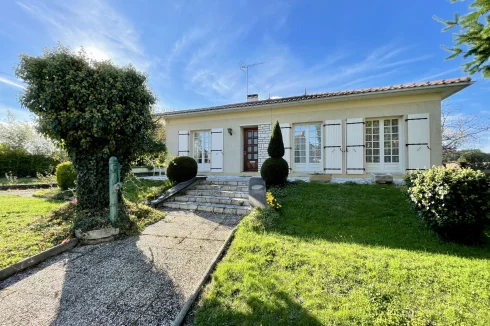Tightening of Complementary French Health Policies
Thursday 04 December 2014
The government have tightened the range of health insurance cover that must be provided by complementary 'top-up' health insurers.
Those readers who have some familiarity with the French health system will be aware that it is not free at the point of use, as is the case in the United Kingdom.
You pay a charge for each treatment, for which you need to apply for reimbursement, although for many people the process is automated, so little or no cash changes hands.
However, other than for certain serious long-term illnesses, or for those on a low income, the State only reimburses a percentage of your health costs, generally up to 70%.
As for the balance, you either need to fund these costs from your pocket at the point of delivery, or take out a complementary (voluntary) 'top-up' insurance policy, called assurance complémentaire santé.
Depending on just how much you are prepared to pay, these insurance policies offer different levels of guarantee, from the most basic minimal level of cover to the most expensive policies that will cover just about all of your costs.
With the twin objectives of introducing a minimum basket of cover in such policies, and of also setting a maximum charge for certain services in order to control health costs, the government have introduced a new framework for these policies.
Complementary insurers can choose if they wish, to offer a lower minimum level of cover than is prescribed in the regulations, but they will be subject to a higher level of taxation if they do not offer the based level of cover.
Quite how the insurers will respond is as yet not entirely clear.
The new regulations cover a number of areas, but much to the surprise of many observers, omitted are a platform or a ceiling on prices and reimbursement levels for dental treatment.
The main changes are:
Prescription Medicines
All prescription medicines with a reimbursement level from the State of at least 65% must be fully covered for the balance by the complementary policy.
Accordingly, medicines considered of little value, with reimbursement levels of 15% or 30%, as well as thermal treatments, do not have to be covered by such policies.
In practice, there is little change here, as most insurers already do a minimum level of cover at this level, and the best policies fully cover all medical prescriptions.
Hospital Admission
In-patient hospital costs are reimbursed at the rate of 80% of the State tariff (although many consultants impose additional charges), but each patient is responsible for a daily charge of €18, called the forfait journalier hospitalier, as a contribution towards the costs of their stay.
The new regulation states that this forfait journalier hospitalier must be covered in the complementary health policies of insurers.
In practice, most policies cover it, although some for only a limited period. The duration of the cover must now be unlimited.
Consultants Fees
The level of consultants fees is one of the most controversial topics in the French health system, for most consultants impose a charge (dépassement) above the standard government tariffs, some of which can be a significant financial burden, and which may only in part be covered by a complementary policy.
In attempt to keep down these 'dépassements' in future the maximum level of reimbursement permissible through a complementary policy will be 120% of the standard tariff.
Prescription Glasses
The level of reimbursement from the State for prescription glasses is low, due in the main to the fact that over the years the regulated tariffs have not been adjusted in line with inflation, much in the same way as has occurred with the State tariffs for consultants.
As a result the gap has been filled by the complementary insurers who have offered a range of policies that compensate for the level of State support.
However, in the view of the government, this has been at the expense of pushing up the price of glasses, as opticians advise their clients they could (sometimes) fall back on their 'mutuelle'.
The new framework imposes a range of minimal and maximum levels of reimbursement that the insurers can offer, from €50 for the simplest lenses to as high as €850 for more complex corrections. Frames cannot be reimbursed for more than €150, and insurers can only reimburse one pair a year, except for children and other exceptional cases.
Implementation
The changes will be operative from 1st April 2015, although those contracts currently in place are able to run on the same terms until 31st Dec 2017.
Advice
You can discuss your health insurance requirements with our English language speaking health insurance partner, who is able to offer competitive policies for both private health and 'top-up' cover.
Back To: EU Challenge on Foreign Income
Thank you for showing an interest in our News section.
Our News section is no longer being published although our catalogue of articles remains in place.
If you found our News useful, please have a look at France Insider, our subscription based News service with in-depth analysis, or our authoritative Guides to France.
If you require advice and assistance with the purchase of French property and moving to France, then take a look at the France Insider Property Clinic.





